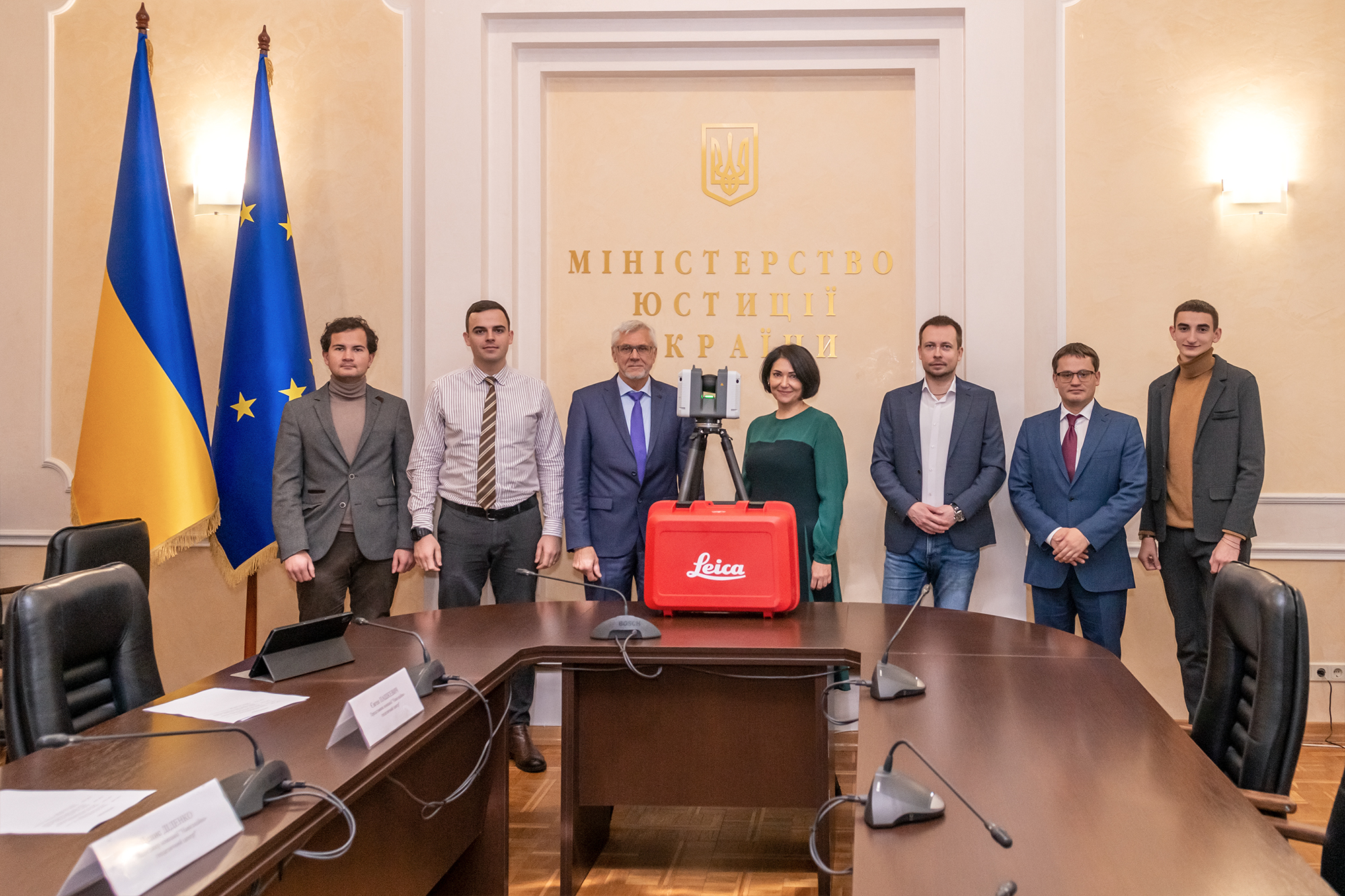The EU Project Pravo-Justice handed over equipment for forensic examinations to the Ministry of Justice

The EU Project Pravo-Justice handed over to the Ministry of Justice of Ukraine two sets of 3d scanners for conducting forensic examinations at the sites of war crimes. This equipment facilitates documenting the evidence and complete picture of the scene in a matter of minutes, as well as identifying the directions and distances from which the shelling was conducted, calculating the positions from which the shots were fired, and, accordingly, identifying the particular enemy units that were shelling.
Previously, to perform such work, experts had to work for hours and days.
"When the Kyiv region was liberated, the experts had to work without communication, without electricity, without water. The experts had to record everything to the maximum while the shells were lying there, even when the bodies were lying on the streets. They had to work hard. Despite all the adverse conditions. The task was to document everything or as much as possible of what was happening in the Kyiv region. People went home only to change clothes and then they would return to work," recalled Andrii Haichenko, Deputy Minister of Justice for Executive Service.
The 3d scanners can work in any weather conditions, under any lighting and they have autonomous power. And they do their work incomparably faster and more accurately than humans. Such a scanner can record up to 2 million parameters in one second. And in order to create a complete three-dimensional picture of the scene, it takes 26 seconds of work. Even in total darkness. This is fundamentally important, as it will not only speed up the work of experts and investigators, but will also help save many lives - criminalists often have to work in areas that occasionally still come under fire.
"We clearly understand that without modern technologies proper fixation of the evidence base and effective investigation of crimes are impossible. In the conditions of war, when the speed of gathering evidence is of crucial importance for the further process of proving the guilt of the invaders in court, the use of 3D scanners will allow to significantly reduce the work time of forensic experts in the territories liberated from the Russian occupiers and ensure the collection of a high-quality evidence base," the EU Project Pravo-Justice key national expert Oleh Mykhalyuk noted.
According to the estimates of the Ministry of Justice, at least 170 experts should be involved in order to carry out examinations in the currently liberated territories in due time. The 3d scanners help to use human resources much more economically and efficiently.
Immediately after they are handed over to the representatives of the Ministry of Justice, the first sets of scanners will be sent to the east of Ukraine where hostilities have just ended or are still ongoing.
Earlier, the EU Project Pravo-Justice Project handed over several sets of equipment for investigative work at war crime sites to the Prosecutor General's Office.